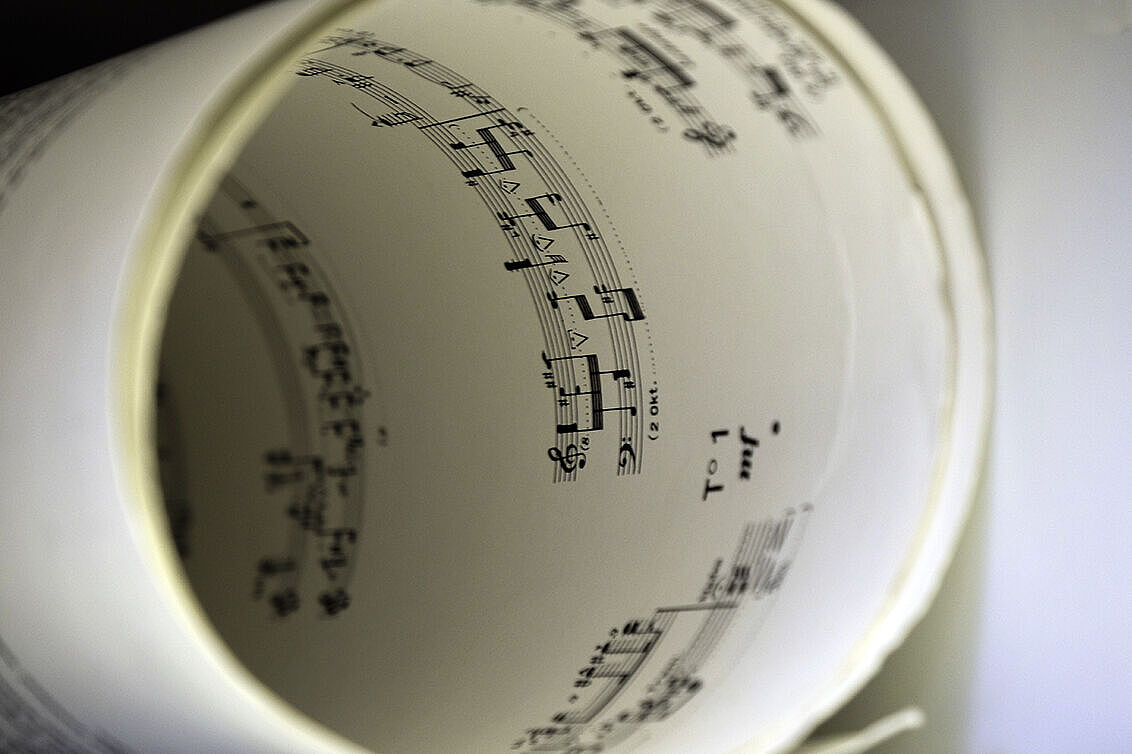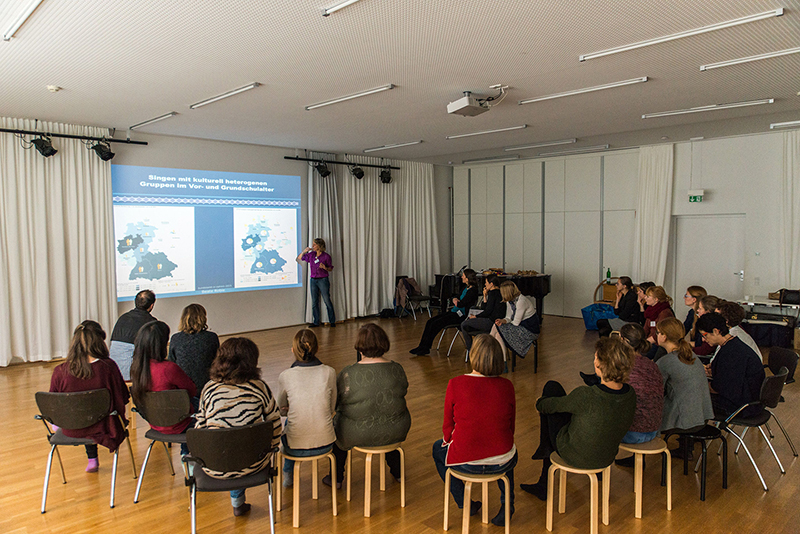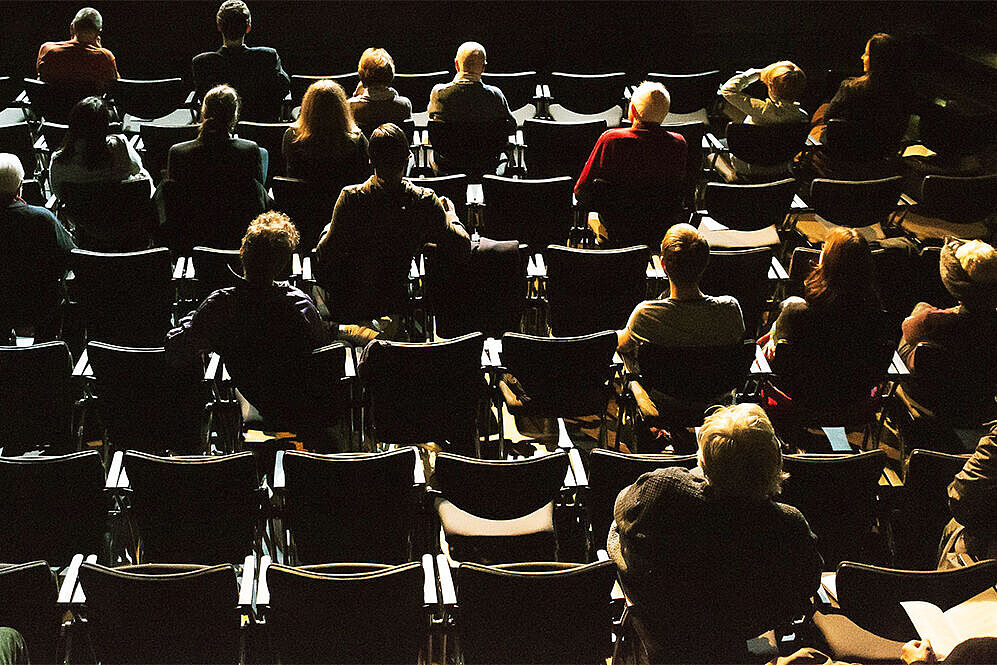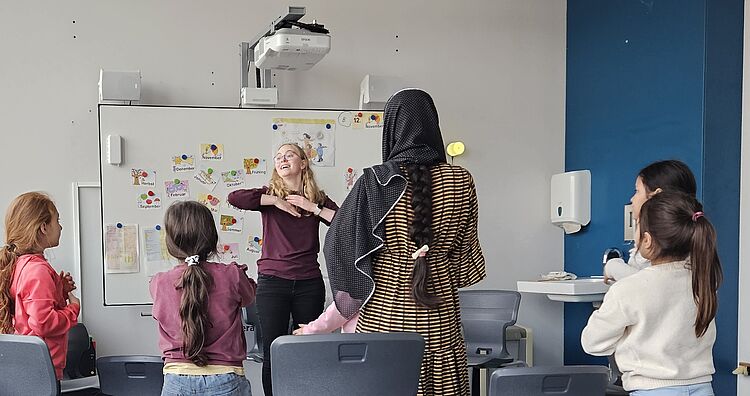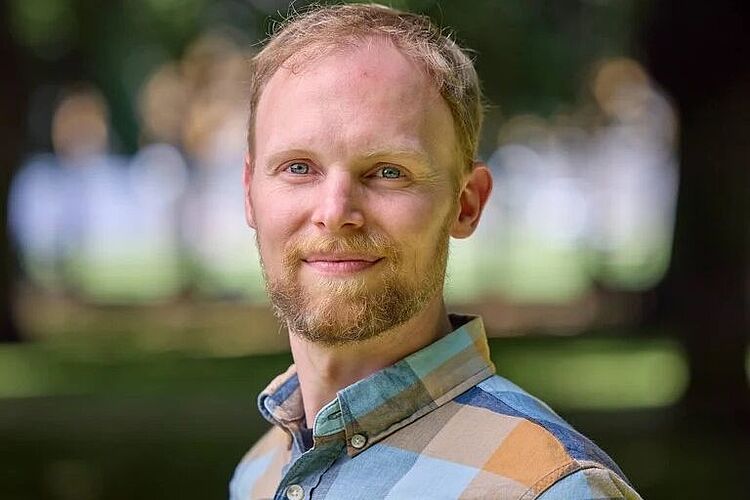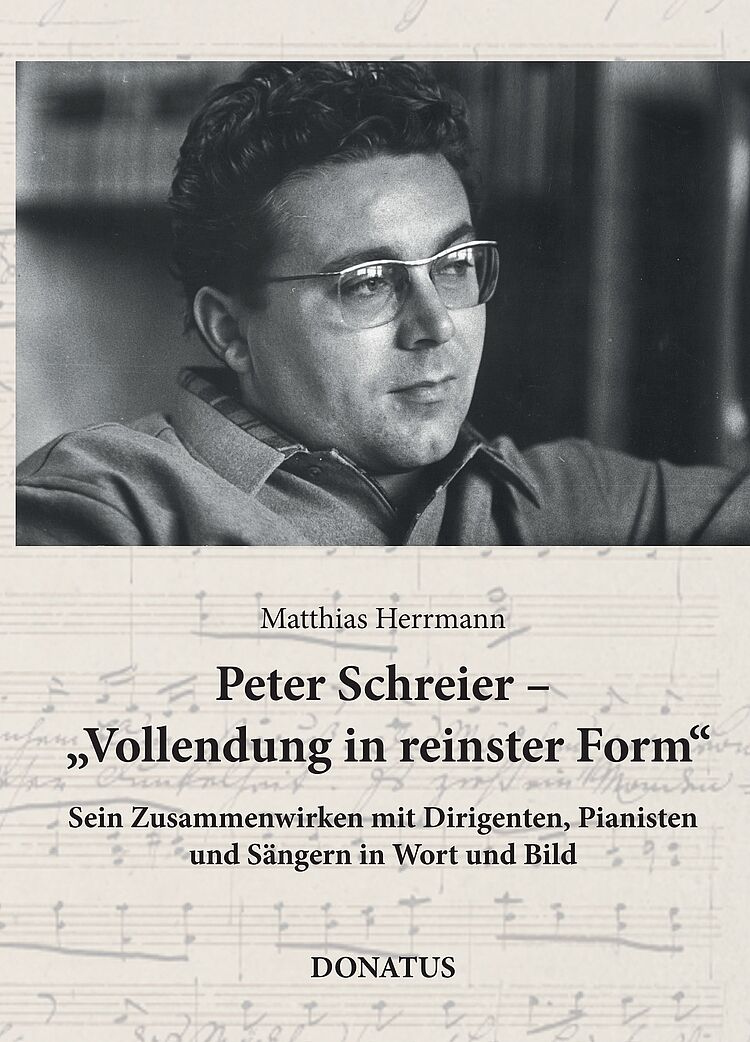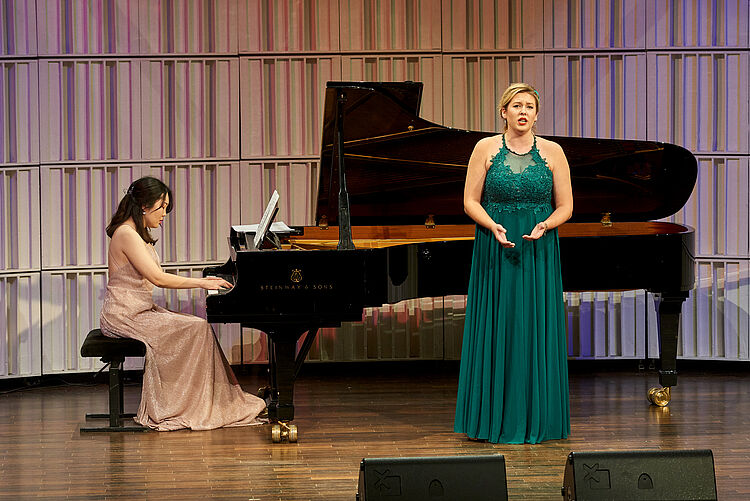Research at the HfM Dresden
At the Dresden University of Music, researchers and artists collaborate in a unique way; innovative research projects and informed, well-founded teaching are intertwined. Science and art are not opposites, but rather mutually dependent and enriching – from dissertations and postdoctoral theses to large, often interdisciplinary research projects with numerous staff members and international partners.
For many years, the HfM Dresden has been particularly strong in research and external funding. Historical and aesthetic approaches, cognitive and corporeal dimensions, individual perspectives, and societal relevance are all topics addressed in funded research projects. The HfM Dresden supports promising external funding applications, including those from external researchers, with seed funding.
Informations Projects, Doctorates, Conferences, Publications
News Lectures, Activities, Publications
Sprachförderung durch Musik und Theater
Kooperation mit der 153. Grundschule
Strategien des Ausbruchs
Vortrag von Dr. Sören Sönksen in der interdisziplinären Vortragsreihe »Insights : Zwischen den Zeilen«
Donnerstag 22.1.26, 17:30–18:45 Uhr
Peter Schreier – Vollendung in reinster Form
Neues Buch von Musikwissenschaftler Prof. Dr. Matthias Herrmann
Wissenschaft und Lehre Hand in Hand
Studie des Studios für Stimmforschung in der Fachzeitschrift Journal of the Acoustical Society of America erschienen
Events Symposia & Lecture Series
Research institutions at the HfM Dresden Artistic excellence combined with scientific expertise
![[Translate to Englisch:] Buchrücken/Foto: Marius Leicht](https://www.hfmdd.de/fileadmin/_processed_/3/f/csm_Buchruecken_Leicht_c3c6fe75b0.jpg)
Institute for Musicology
Teaching and research at the Institute of Musicology cover the entire field of historical musicology, from early music to contemporary music.
![[Translate to Englisch:] 3D-Bewegungsanalyse/Quelle: IMM Dresden](https://www.hfmdd.de/fileadmin/_processed_/d/7/csm_IMM_3D_Bewegungsanalyse-farb_e94adafcbb.jpg)
Institute of Musicians‘ Medicine
The Institute of Musicians‘ Medicine (IMM) is dedicated to the health situation of professional musicians. Teaching, research and clinical work are the primary functions of the IMM.
![[Translate to Englisch:] Kind an Percussion/Foto: Marcus Lieder/Quelle: Kolibri e.V.](https://www.hfmdd.de/fileadmin/_processed_/a/e/csm_2016-Kind_an_perc_Lieder_aaa55969e0.jpg)
Institute for Music Pedagogy
In addition to researching the social and musical framework conditions that accompany instrumental and artistic learning processes and the recognition and promotion of musical talent by the children's class, the main tasks of the institute include holding national and international symposia, lectures, workshops and discussion forums.
![[Translate to Englisch:] Zwei Musiker im Konzert/Foto: Marcus Lieder](https://www.hfmdd.de/fileadmin/_processed_/c/0/csm_INM_Kuhn_Lieder-klein_cb88c1f608.jpg)
Institute for New Music
Within the Dresden College of Music, contemporary music of various styles is of comparatively great importance. The Institute of New Music sets unusual accents in Dresden's cultural landscape with a multitude of concerts and theoretical events.
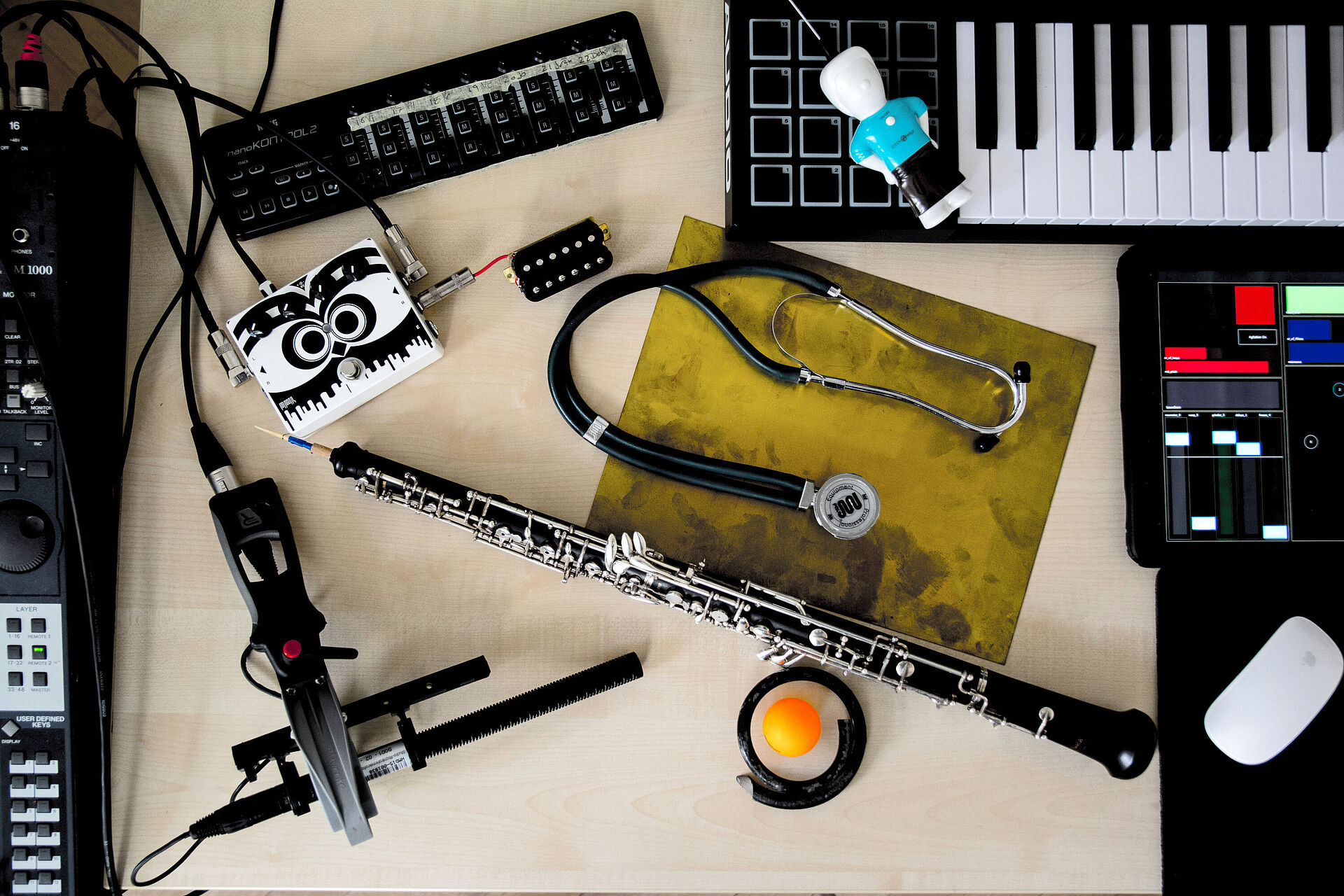
Hybrid Music Lab
Here you will find everything you need to produce, mix and perform electronic music and unusual performances of all kinds. There are lessons in sound research, acoustics, audio programming and electronic composition.
![[Translate to Englisch:] Vortrag zur Langen Nacht der Wissenschaft/Quelle: HfM Dresden](https://www.hfmdd.de/fileadmin/_processed_/e/3/csm_SfS-Zabel-LNDW_16_Lieder_31209f15e7.jpg)
Studio for Voice Research
The Studio for Voice Research combines vocal pedagogical teaching and scientific research in the field of the voice.
![[Translate to Englisch:] Kopfhörer/Foto: Marius Leicht](https://www.hfmdd.de/fileadmin/_processed_/6/e/csm_Kopfhoerer_Leicht_7b12131668.jpg)
Centre for Music Theory
The centre sees itself as a meeting place and umbrella for all music-theoretical activities outside the college's teaching activities. It is intended to sharpen the profile of a subject that has undergone major changes in recent years, both inside and outside the college.
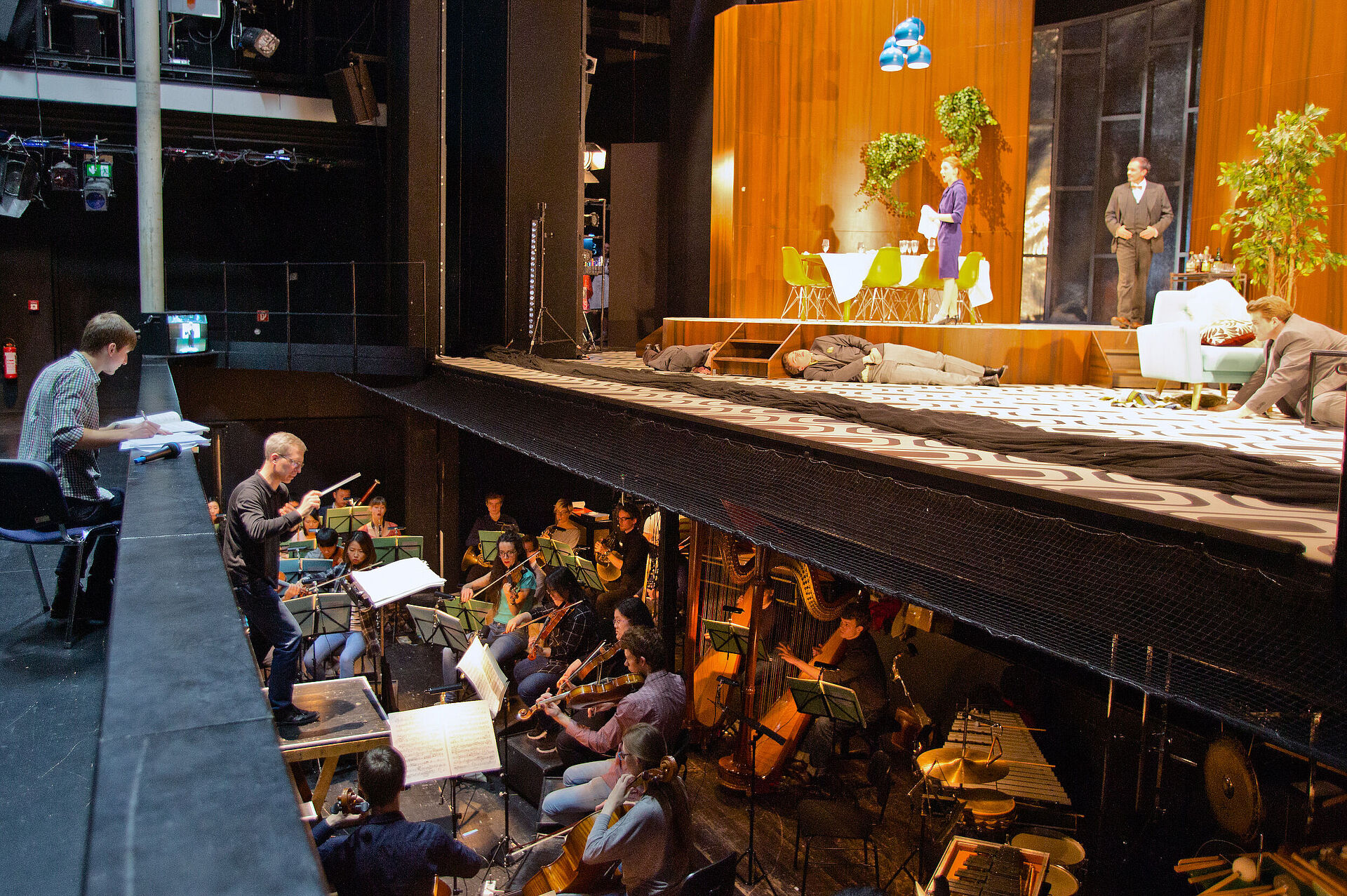
Dresden Institute for Ensemble- und Orchestra Development
The Dresden Institute for Ensemble and Orchestra Development (DIEO) at the Carl Maria von Weber University of Music Dresden bundles the activities of education in the subjects of instrumental music:

